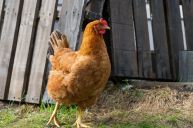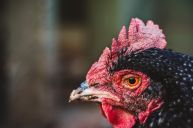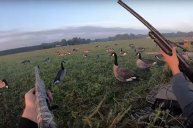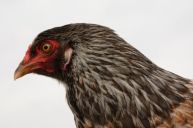Interested in a pet goose? The Sebastopol goose is a beautiful breed! These birds have a quiet disposition and are used as a show bird, but they're also good for raising as pets.
The Sebastopol goose is easily identified by its curled feathers. The white variety is best known. They're very hardy and great in colder climates.
Also, their curled feathers prevent flight, which makes them easier to confine.
Reasons to love them
https://www.instagram.com/p/B74VGHiAsP8/
They are listed on the Livestock Conservancy Board as a threatened breed, so we need to watch out for these birds! Some keepers have Grey, Grey Saddleback, Buff Saddleback, Blue and Lavender Sebastopols. The colors are simply stunning.
This breed is particularly quiet, too.
History
Praire Creek Kids wrote a beautiful piece on Sebastopol geese and her pics of those that she has as pets are precious.
"Sebastopol Geese are a heritage breed originating in England in 1860. They were also known as Danubian geese in Britain in the 19th century. The Germans can them Lockengans or curl-goose and Struppgans meaning unkempt goose. They came to the U.S. from southeastern Europe around the Black Sea. They are named after the Russian City that exported them to the U.S. They were accepted in the Poultry Association in 1938."
A flock of geese is known as a gaggle!
Qualities
https://www.instagram.com/p/B7kQjp1Db2T/
They can live up to 25 years if provided a good safe environment to live in. You'll need to be committed to this breed as this is a lifetime commitment for some of us.
- They weigh between 10 and 12 pounds.
- They cannot fly due to their curled feathers.
- They are typically white, but the colors can vary, presenting different complements to their striking, blue eyes.
- They have large, rounded heads, prominent eyes, slightly arched necks and keelless breasts.
They have a quiet and pleasant disposition. What a nice goose to have as a pet!
Egg production
They lay about 25-35 eggs per year, which are of the large, white variety.
This waterfowl breed has curly feathers, bright blue eyes and they're adorable. The Sebastopol goose breed can thrive in cold weather, which is another positive characteristic.
This domestic goose is threatened and many backyard poultry and waterfowl keepers should consider this breed and others like the Toulouse so we keep these birds thriving when their numbers are dwindling. They can live in a coop!
Are you interested in raising geese? If you have any questions or comments, please let us know as we'd love to hear from you!




